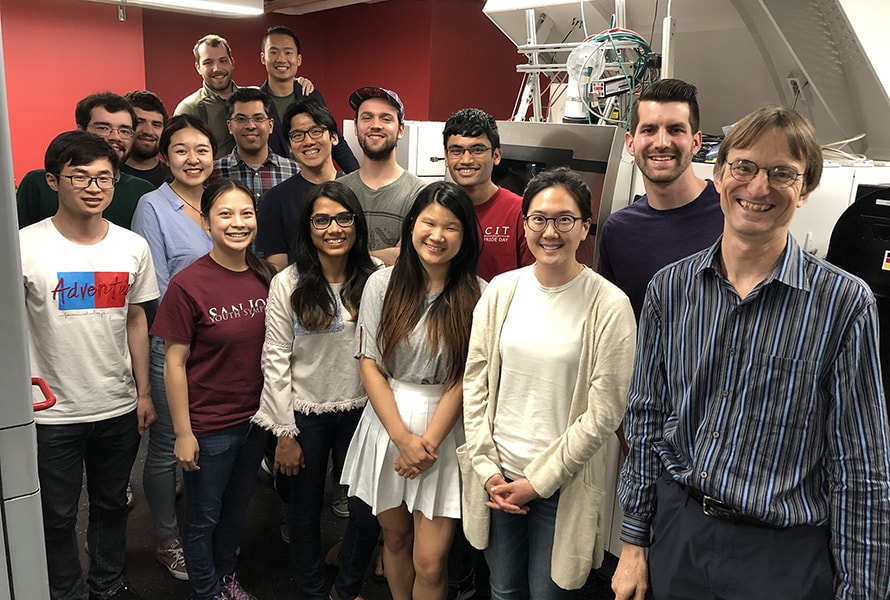
Personal Mention
A team led by Materials Science and Engineering Professor Anthony Rollett has received a $2.4 million grant from the U.S. Department of Energy's Advanced Research Projects Agency — Energy (ARPA-E) to create high temperature heat exchangers using new methods and techniques for 3D printing. The project is one of 18 projects being supported by the Department of Energy for high-temperature materials and is part of the High Intensity Thermal Exchange through Materials and Manufacturing Processes program. Heat exchangers are devices that transfer heat from one fluid to another without the fluids coming into contact. They are commonly used in engines of cars, ships and planes, and in heating and cooling systems, including air conditioners and refrigerators. The overall ARPA-E initiative is supporting the creation of critical heat exchangers for thermal energy use in applications such as electricity, nuclear reactors and transportation. The grant will bolster Rollett's research for three years and support Ph.D. students and help advance materials research and additive manufacturing. Through 3D printing, the exchangers will be able to have wider variations in their shapes, he said. Find out more.
 Barbara Shinn-Cunningham received the George A. and Helen Dunham Cowan Professorship in Auditory Neuroscience at a ceremony on Wednesday, Nov. 6. Shinn-Cunningham joined CMU in 2018 as director of the Neuroscience Institute, which comprises faculty from five of CMU’s seven schools and colleges, harnessing the university’s core strengths in cognitive science, computation, data science, biology and engineering. Her research combines behavioral, neuroimaging and computational methods to understand how the brain processes sound. Alumnus George Cowan and his wife, Helen, established the chaired professorship. Shinn-Cunningham plans to use funding from the chair to support research on brain stimulation and its effect on control of attention, as well as fund graduate students to assist in these goals. Find out more.
Barbara Shinn-Cunningham received the George A. and Helen Dunham Cowan Professorship in Auditory Neuroscience at a ceremony on Wednesday, Nov. 6. Shinn-Cunningham joined CMU in 2018 as director of the Neuroscience Institute, which comprises faculty from five of CMU’s seven schools and colleges, harnessing the university’s core strengths in cognitive science, computation, data science, biology and engineering. Her research combines behavioral, neuroimaging and computational methods to understand how the brain processes sound. Alumnus George Cowan and his wife, Helen, established the chaired professorship. Shinn-Cunningham plans to use funding from the chair to support research on brain stimulation and its effect on control of attention, as well as fund graduate students to assist in these goals. Find out more.
 Physics Professor Markus Deserno has been elected a fellow of the American Physical Society (APS). Deserno was nominated by the APS Division of Biological Physics “for pioneering contributions to the theory and simulation of biological membranes and proteins, and their interactions, leading to improved understanding of cellular mechanics and self-organization.” Deserno’s work focuses on the physical problems that occur within the context of molecular cell biology, focusing on cells’ lipid membranes and the molecules that interact with those membranes to carry out vital processes. His coarse-grained simulations have been used to explain a number of cellular processes, including dynamic-driven membrane fission and viral assembly. Find out more.
Physics Professor Markus Deserno has been elected a fellow of the American Physical Society (APS). Deserno was nominated by the APS Division of Biological Physics “for pioneering contributions to the theory and simulation of biological membranes and proteins, and their interactions, leading to improved understanding of cellular mechanics and self-organization.” Deserno’s work focuses on the physical problems that occur within the context of molecular cell biology, focusing on cells’ lipid membranes and the molecules that interact with those membranes to carry out vital processes. His coarse-grained simulations have been used to explain a number of cellular processes, including dynamic-driven membrane fission and viral assembly. Find out more.
